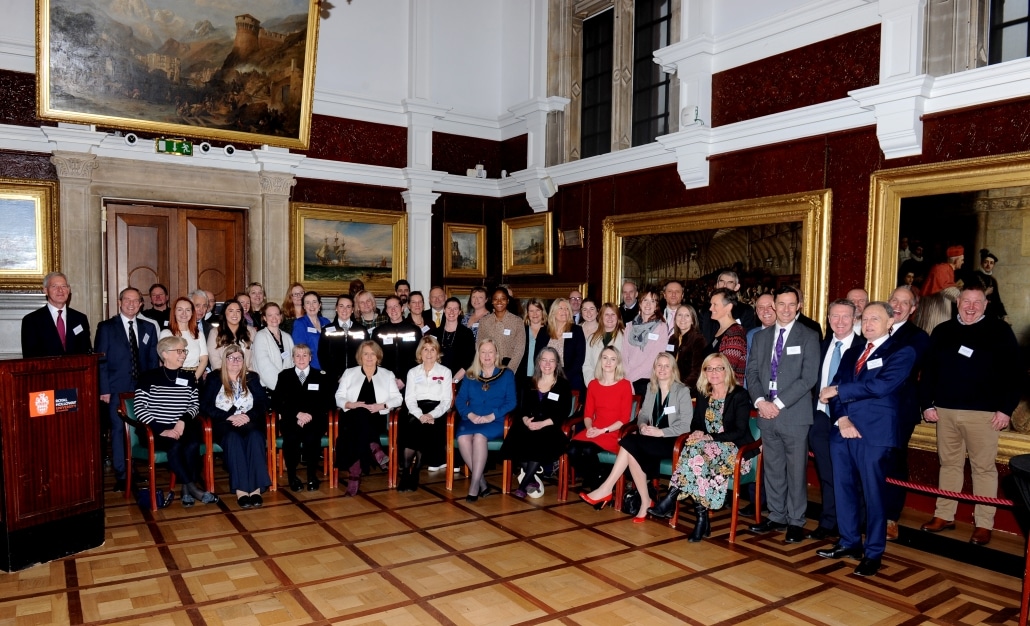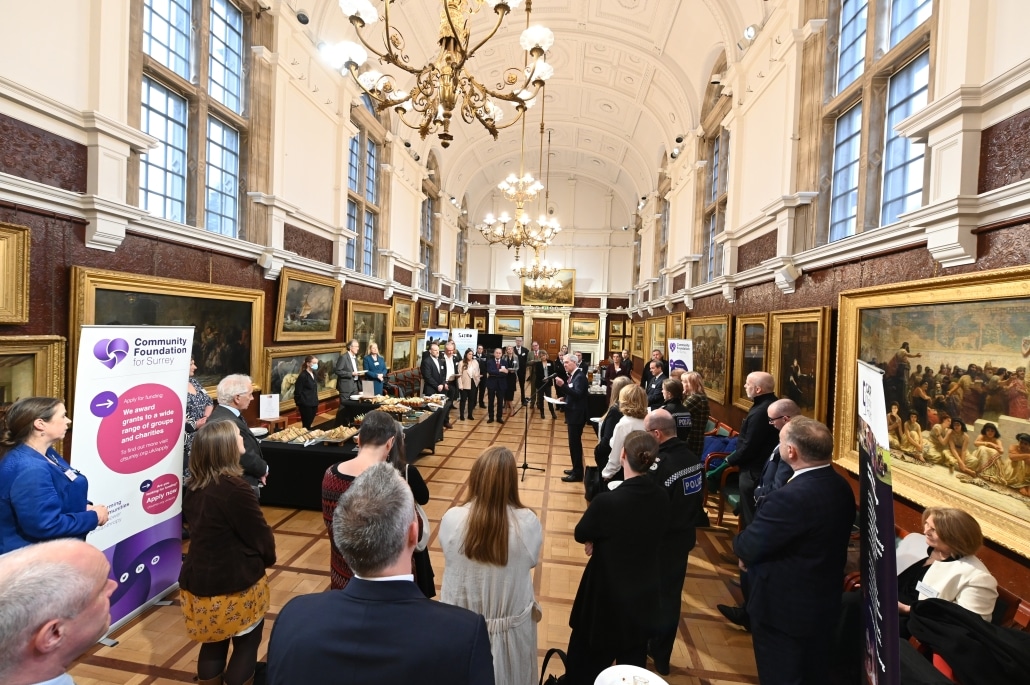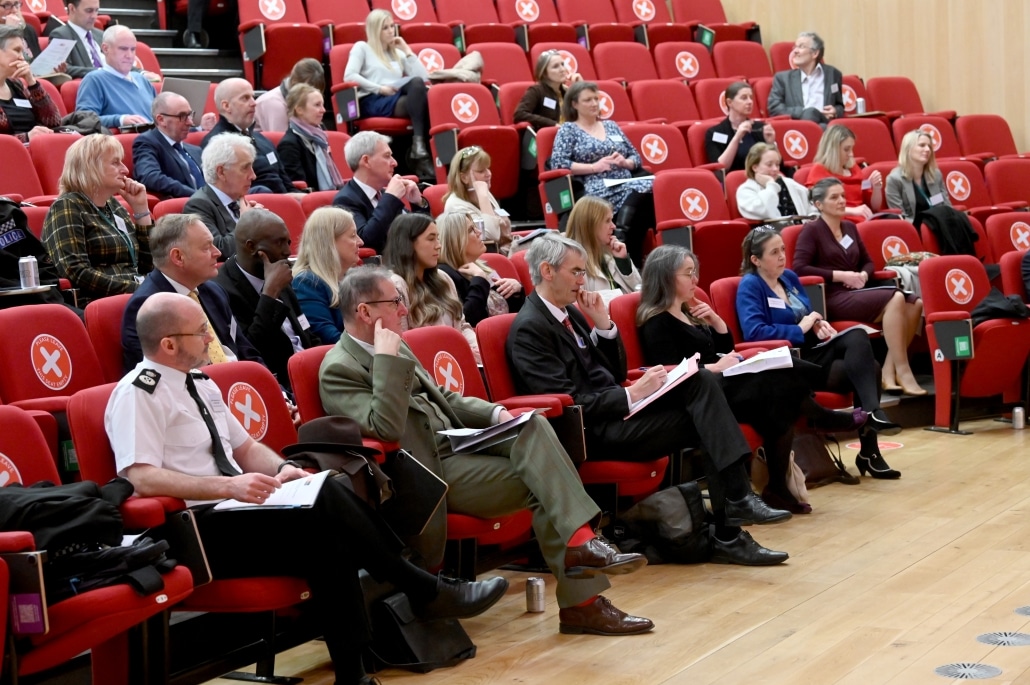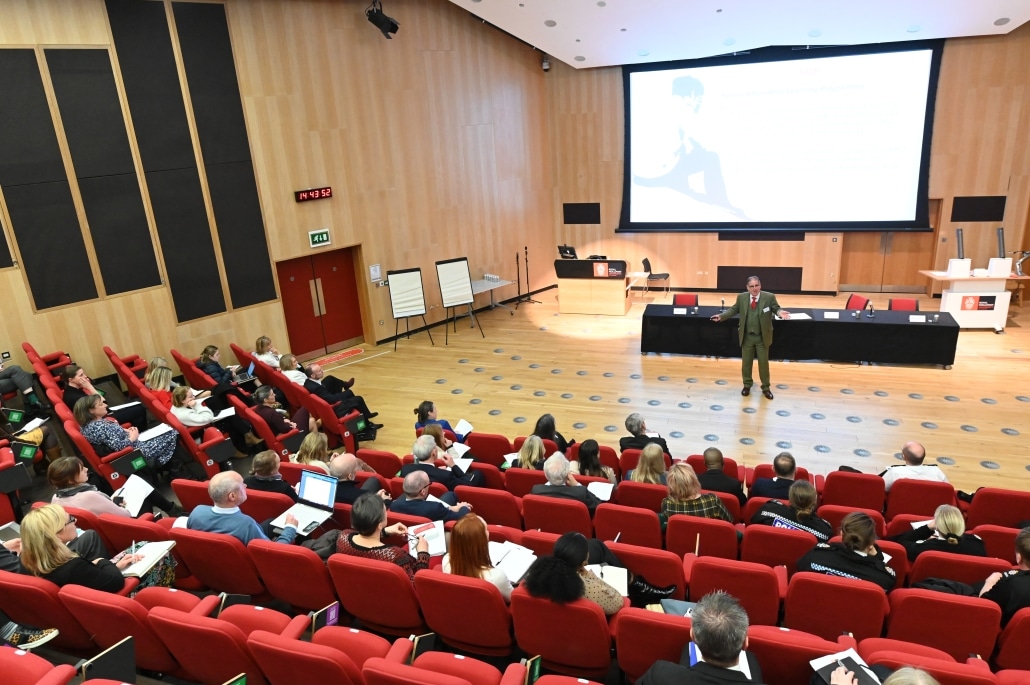Second summit celebrates Surrey school inclusion progress
Cross-agency cooperation shone through at the second summit on reducing permanent school exclusions in Surrey, convened by the High Sheriff, facilitated by Jim Glover OBE DL, and generously hosted and sponsored by the Royal Holloway, University of London (RHUL).
The second summit focused on the outstanding progress made across Surrey in implementing the recommendations since the first summit in July 2021, when they were initially discussed with the same audience.
Around 70 delegates attended, including representatives from local authorities, teachers, the voluntary sector and Surrey Police, who work with children at risk of being excluded from mainstream education.
Dr Llewelyn said: “It was great to feel the positive energy in the room as people met with each other face-to-face again and heard about the excellent progress made.”
Data points to success in decreasing exclusion
The second summit also coincided with publishing the full report of the RHUL research work on permanent school exclusion in Surrey. Authored by Dr Emily Glorney and Natasha Rhoden, it includes evidence-based recommendations for Surrey based on analysing extensive data on children who had been permanently excluded and extensive interviews with stakeholders.
Dr Glorney presented the full report findings and focused on the risk factors for permanent school exclusion in Surrey that the data proved have distinct differences from the national picture.
One of the first summit’s recommendations was enhancing the implementation of the Surrey Alternative Learning Programme (SALP) across the county quadrants to offer alternative styles of education better suited to children at risk of exclusion.
Ron Searle, chair of Trustees Inclusive Education Trust and SALP’s central board, spoke about its rollout. The data showed SALP’s effectiveness in some county regions, driving the decision to make equal provision across the whole of Surrey. The number of permanent school exclusions has already decreased.
He said: “We are not doing badly in Surrey now, in terms of exclusions, but let’s work together to make sure that no young person gets anywhere close to exclusion.”
Police focus on needs of the child first
The police are often associated with a child or young person being involved in the criminal justice system, but Surrey Police places more importance on preventing them from getting to that point.
Chief Constable Gavin Stephens QPM said Surrey Police wants to avoid permanent exclusions by developing a Surrey risk index that identifies at-risk children early and supports them, rather than making permanent exclusion a ‘critical incident’.
He explained: “We are trying to mitigate some quite drastic risks through early intervention.”
After a short break, Anne Longfield CBE addressed the audience. She said: “I have seen a determination and commitment to build inclusive schools and communities. This is the next step in building the bold and ambitious plans that children need to thrive.”
Dr Llewelyn added: “It is a measure of the importance of the work done to date that Anne, who was children’s commissioner until 2021, attended the summit. She spoke about the importance of significantly preventing children ‘falling through the cracks’ as the pandemic has affected education. She also commented that this work was positive and will be helpful in other regions.”
Inspiration and support from the third sector
At the first summit, the audience was inspired by Maureen Mckenna, who has pioneered Glasgow City Council’s success in reducing exclusions through a child-centred, whole-school approach. This included a mentoring programme by charity MCR Pathways that has increased attendance and attainment at secondary schools so dramatically that it is now in place across Scotland and extended to Hertfordshire. A Surrey pilot will soon be set up.
The afternoon closed with the Community Foundation for Surrey (CFS) announcing the launch of a new £1 million fund to help young people in Surrey who have mental health issues. These often go hand in hand with school non-attendance issues, and CFS has had a massive increase in the number of requests for funding in this area. It will fund large multi-year projects that are strategically targeted to maximise impact.
Dr Llewelyn closed the meeting by celebrating the excellent progress and concluding that it was now necessary to fully develop the Surrey risk index of exclusion and integrate it into the support systems to increase the life chances of the children and young people in the county.




You can download the agenda and full PowerPoint presentation below, as well as the video MCR Pathways played during their presentation.
Inspired Schools, Education and MCR Partnerships (YouTube video link)


